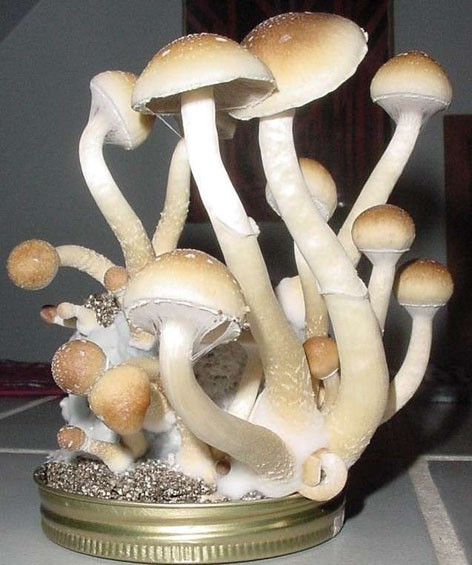New Magic Mushrooms Treatment for Depression Held up by Red Tape, says Scientist David Nutt

The development of a new treatment for depression harnessing the power of magic mushrooms has stalled because of red tape, a leading scientist has claimed.
David Nutt, professor of neuropsychopharmacology at Imperial College London, claims new evidence shows a component of the class-A drug known as psilocybin can help repress parts of the brain associated with self-criticism.
But attempts to manufacture psilocybin for clinical trials have run aground because of legislation prohibiting the manufacture of banned substances.
"We haven't started the study because finding companies that could manufacture the drug and who are prepared to go through the regulatory hoops to get the licence is proving very difficult," Nutt told today's Observer newspaper.
"The whole field is so bedevilled by primitive old-fashioned attitudes. Even if you have a good idea, you may never get it into the clinic, it seems."
'Stops obsessive worrying'
Nutt said that healthy test subjects given psilocybin reported significant improvements to their mood weeks after taking the drug.
Subsequent research showed that psilocybin turns off the singulate anterior cortex, a part of the brain which is over-active in depressives.
Default mode networks in the brain were also influenced by the drug, and are associated with self-reflection and self-criticism.
"People with depression have overactive default mode networks and so ruminate on themselves, on their inadequacies, on their badness, that they are worthless, that they have failed - to an extent that is sometimes delusional. Again psilocybin appears to block that activity and stops this obsessive rumination," said Nutt.
'Ecstasy is no more dangerous than horse riding'
Nutt was sacked as chairman of the government's Advisory Council on the Misuse of Drugs in 2009 after repeatedly challenging drugs legislation. He had claimed that taking ecstasy was no more dangerous than horse riding.
He has been granted £550,000 by the Medical Research Council to begin trials of psilocybin on those suffering depression. To qualify, test subjects would be given two unsuccessful courses of treatment for depression. Thirty would have been given psilocybin and 30 a placebo.
However chemicals companies, restricted by UK and EU anti-drugs legislation, have declared that it would cost them £100,000 to manufacture psilocybin once they had acquired a special licence, a price unaffordable to professor Nutt and his research team.
"We only need a relatively small amount of the drug, an order worth only a few hundred pounds," said Nutt, "If we have to pay £100,000 we simply cannot afford to carry out the rest of the study. We have not given up but it is proving very difficult," he said.
He will tell the British Neuroscience Association today that legislation is also restricting clinical research into banned drugs such an cannabis and ecstasy.
"Depression is now the largest cause of disability in Europe. There are many effective treatments but only about a third of individuals respond fully. At least 10 percent fail to respond to three different treatments. We badly need more types of treatment but we cannot pursue these because the government is denying scientists access to powerful tools that could help people in need.
"The regulations that govern researchers access to Class A drugs are totally inappropriate and harmful."
A Home Office spokesman said: "Our licensing regime enables legitimate research to take place while ensuring that harmful drugs don't get into the hands of criminals.
"We have no evidence to suggest that the current listing of psilocybin as a schedule one substance is a barrier to attracting funding for legitimate research."
© Copyright IBTimes 2025. All rights reserved.






















